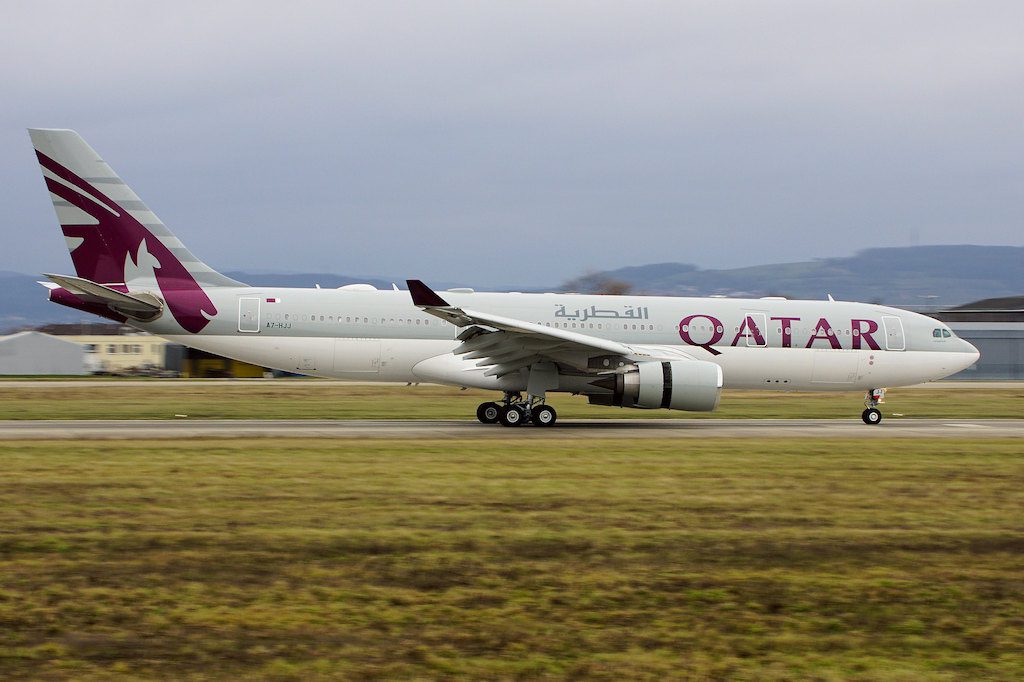Skift Take
United Airlines supports a trade group that rails against almost everything Qatar Airways does. But this summer, United will put its customers on Qatar Airways jets to fly across the Atlantic. This is interesting, right?
Next month, Air Canada expects to pay Qatar Airways to operate two routes for it from Montreal, one to Paris and the other to Barcelona, both with Airbus A330s.
This is called a wet lease, and it’s a normal arrangement. Air Canada is short on planes because regulators have grounded its 24 Boeing 737 Max aircraft, while Qatar has more aircraft than it needs. Air Canada’s Max jets generally don’t cross the Atlantic, but the airline shifted some bigger jets to North American routes, and it needs more capacity to Europe.
Air Canada will borrow planes and crews from other airlines, too. But none is as controversial in North America as the loaners from Qatar Airways. Here’s why:
The three major U.S. carriers — United Airlines, Delta Air Lines, and American Airlines — have been livid with Qatar Airways for several years, saying it competes unfairly by taking government subsidies that may allow it to absorb losses on competitive routes. Once, they were most angry about Qatar’s growing slate of flights between the United States and Doha that allowed easy connections to the Middle East and Africa, but more recently they have complained about Qatar Airways investing in Air Italy, a fledgling Italian transatlantic airline.
You may be wondering what that saga has to do with Air Canada, which does not have the same vitriol toward Qatar Airways or other Gulf airlines. But all these airlines are intertwined more than you might think, making complaints about Qatar from U.S. airlines seem disingenuous.
The Ties That Bind Us
In fact, at the same time a United-funded trade group inveighs against Qatar Airways, calling it a cheater and a stealer of American jobs, United and its customers will benefit from Air Canada’s decision to lease jets and crews from Qatar Airways.
The reason? Most travelers know United and Air Canada are partners, which is why passengers can book Newark to Montreal to Barcelona on United.com, an itinerary that includes United 8674 from Montreal to Barcelona, an Air Canada flight.
But they may not know how closely United and Air Canada work together. On transatlantic routes, they’re part of a legalized oligopoly. They, along with several Lufthansa Group airlines, have antitrust immunity from European and U.S. regulators.
Employees from all the companies work in the same offices in Europe and North America, setting capacity, fixing prices, and marketing flights.
They even share revenue, so for United, it’s not so important whether a customer chooses United or Air Canada for transatlantic flights. United makes money regardless of where customers buy their itinerary, or what flight numbers it carries.
Mum’s the Word
There could be a carveout for wet-lease flying. But Skift was unable to get a straight answer from Air Canada or United on how Qatar-operated flights fit into the joint venture.
Asked several times whether the companies share revenue on wet leases, Air Canada spokesman Peter Fitzpatrick said, “There’s no change to the current structure. Air Canada/JV has P&L risk on these operations.”
United also declined to address the issue.
“We’re not going to comment on our partners’ decisions on these matters, but we support their efforts to minimize any inconvenience to our customers due to the grounding of Max,” an airline spokesman said.
Meanwhile, the Partnership for Open & Fair Skies, the group funded by the Big Three, declined to comment, an odd move, considering how hard it has hit Qatar Airways. In a recent release, the group said Qatar Airways was “cheating” and threatening American jobs because of its 49 percent stake in Air Italy. The group has asked the Trump Administration to intervene, even though it’s not clear Qatar is breaking any laws.
The whole thing seems hypocritical: How can U.S. airlines criticize Qatar Airways but then benefit — directly or indirectly — from Air Canada’s partnership with it?
The Proverbial Cake
Let’s remember United isn’t the only U.S. carrier that takes indirect help from Qatar when convenient.
American Airlines has anti-trust immunity with two airlines owned by International Airlines Group — Iberia and British Airways — and is seeking a similar arrangement with LATAM Airlines in South America. Yet Qatar Airways owns 20 precent of IAG and 10 percent of LATAM.
Qatar has relatively small stakes in both, so maybe the investments don’t matter. But two years ago, when some British Airways cabin crew went on strike for better wages, it borrowed nine short-haul airplanes from Qatar. They operated to Munich, Brussels, and Madrid, according to FlightRadar 24, all cities American’s customers visit. You can bet some American transatlantic passengers flew on wet-leased Qatar Airways planes.
Again, this is not the problem. Wet-leasing is a part of the airline industry. Sometimes, airlines are short of planes and crews, and they need help.
But if the U.S. airlines are going to be silent when their closest partners take help from Qatar Airways, they probably also shouldn’t run to the Trump Administration every time Qatar does something they don’t like.
The Daily Newsletter
Our daily coverage of the global travel industry. Written by editors and analysts from across Skift’s brands.
Have a confidential tip for Skift? Get in touch
Tags: american airlines, british airways, gulf carriers, open skies, united airlines
Photo credit: A Qatar Airways A330-200. Air Canada will wet lease Qatar planes on two routes starting next month. LFSB Planes Pictures / Flickr
